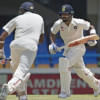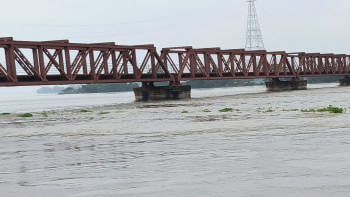7 killed last year while protecting their homes, land
Seven people were killed in Bangladesh last year while defending their homes and land from those implementing power or agricultural projects as opposed to no such deaths in 2015.
These figures were released by a UK based rights group Global Witness in its annual report, titled Defenders of the Earth, published Thursday.
According to the report, growing competition for land and natural resources saw a record number of environmental activists killed in 2016. It was the deadliest year in recent times with at least 200 people killed globally, up about 10 percent from 185 killed in 2015.
Globally nearly four people were murdered each week in 2016 in defending their homes, lands and forests from mining, dams and agricultural projects.
The report states that protest is often the only recourse left to communities exercising their rights to have a say about the use of their land and natural resources, putting them in direct collision with those seeking profit at any cost.
It mentioned the names of the victims in Bangladesh as Anowarul Islam (Angur), Mangal Mardi (Mongol Madri), Mortuza Ali, Ramesh Tudu, Shyamal Hembrom (Shyamal Soren), Zager Ahmed, Zaker Hossain.
Of the seven Bangladeshi victims, Angur, Mortuza, Zager and Zaker were killed on April 4 last year in a clash between law enforcers and locals in Banshkhali upazila of Chittagong over installation of a coal-based power plant.
Mangal, Ramesh and Shyamal were killed when a tripartite clash broke out between the Santals, factory staff and police over the eviction claiming the ownership of the land of Sahebganj-Bagda sugarcane farm of Rangpur Sugar Mills on November 6.
Global Witness documented the murders of 200 land and environmental defenders in 2016. This report is dedicated to their lives, and to all those around the world who stand up for land rights and protection of the environment.
“With many killings unreported, and even less investigated, it is likely that the true number is actually far higher,” the report stated.
The report also pointed out that it is increasingly clear that globally governments and companies are failing in their duty to protect activists at risk and they are permitting a level of impunity that allows the vast majority of perpetrators to walk free, emboldening would-be assassins.
“Incredibly, it is the activists themselves who are painted as criminals, facing trumped-up criminal charges and aggressive civil cases brought by governments and companies seeking to silence them. This criminalisation is used to intimidate defenders, tarnish their reputations and lock them into costly legal battles.”
The report stated that the phenomenon of violence against land rights activists is not only growing but spreading as well with murders recorded in 24 countries, compared to 16 nations the year before.
It blamed investors for fuelling violence by backing projects that trash environment and trample human rights.
Brazil remains the deadliest country in terms of sheer numbers while Nicaragua has overtaken Honduras as the most dangerous place for activists per capita, according to the report.
The rights group has been publishing annual reports on threats to activists since 2012, although it has data going back to 2002.
The report observed that the rhetoric on sustainable development and climate change will prove empty if those defending their land and the environment continue to have to risk their lives in doing so.
“Governments, companies and investors, therefore, must take a stand and guarantee that local communities and defenders are consulted rather than killed.”

 For all latest news, follow The Daily Star's Google News channel.
For all latest news, follow The Daily Star's Google News channel. 








Comments